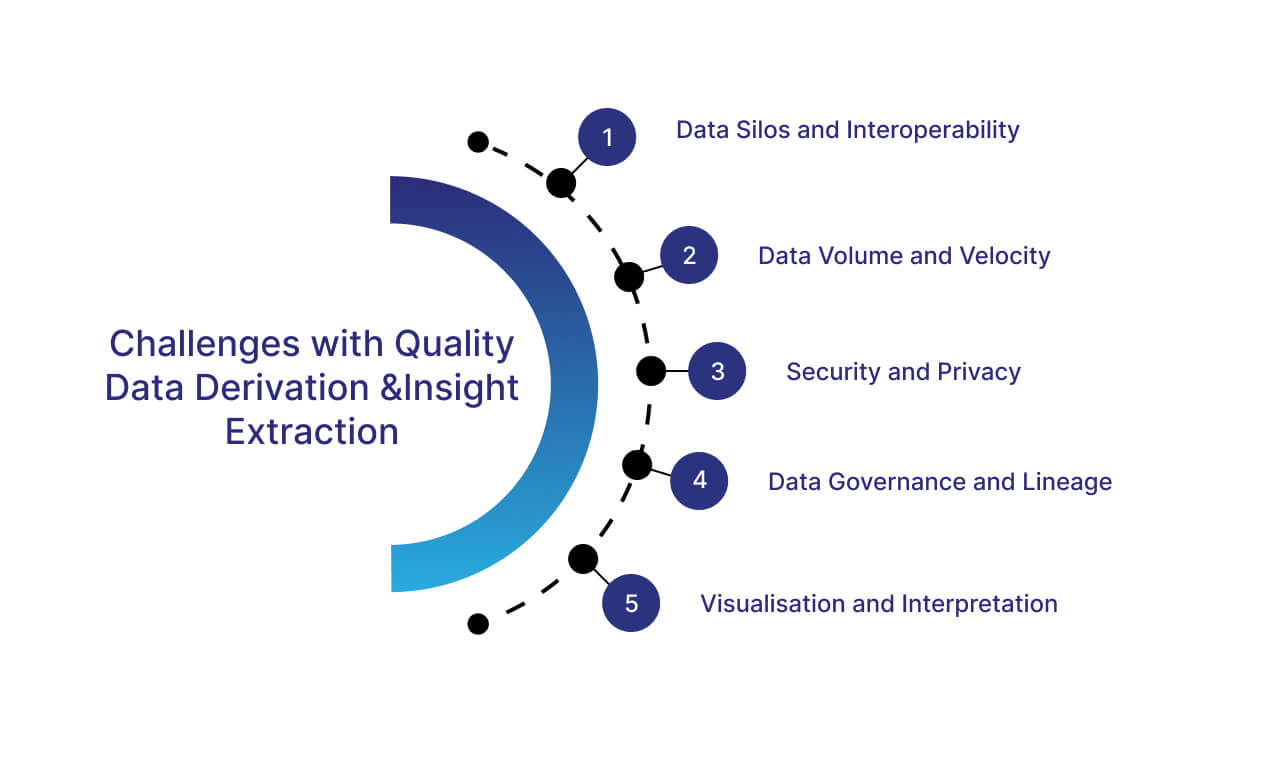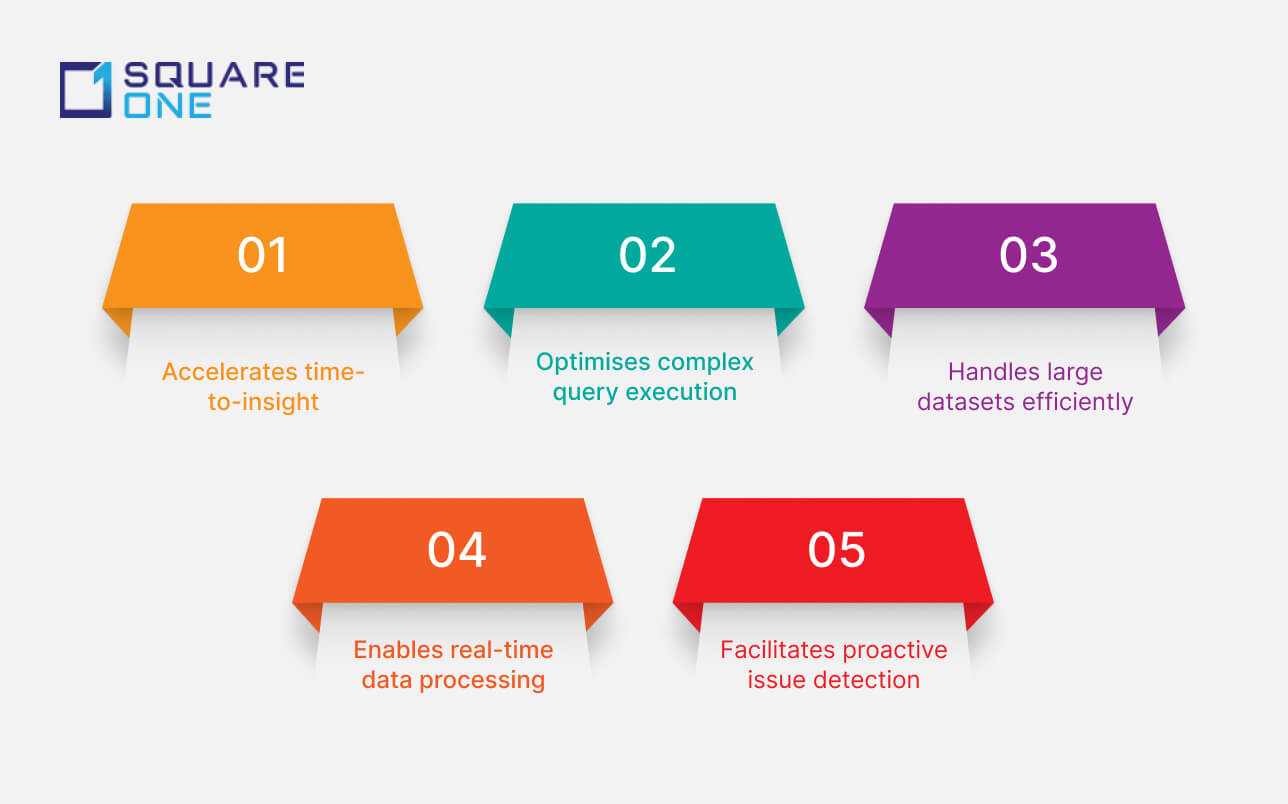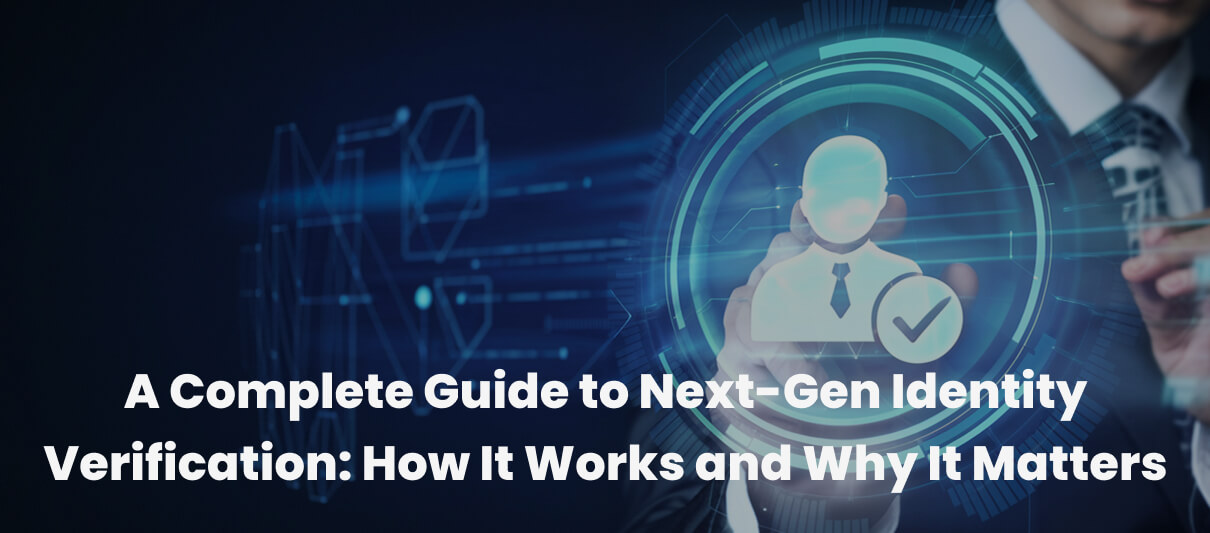How Qlik's New Integration Accelerates Business Intelligence
What if we told you your organisation has enough data to grow the business and its internal functions through intuitive and informed decisions?
All you need is a good data integration solution that combines data from multiple sources across your business to transform raw data into actionable insights, enabling accurate and reliable data-driven decisions. Data integration solutions lay the foundation for business intelligence (BI). Insightful decisions at the right time for a business are crucial, but the challenges of obtaining them from multiple platforms, putting them together in an organised way, and migrating them to another environment for processing and analysis are high and complex.
Your business data needs seamless integration and streamlined workflows to ensure accurate and timely insights. Qlik is a data solutions platform specialising in business intelligence and data visualisation. It helps organisations gain detailed insights from their data, enabling data-driven decisions, improved efficiency, and the discovery of hidden opportunities.

This blog delves into the challenges businesses face in obtaining quality insights from vast datasets, the significance of data integration, and how Qlik’s data integration with Databricks AI functions empowers more advanced analytics and streamlines workflow management for more enhanced AI-driven business.
Challenges with Quality Data Derivation and Insight Extraction

Data Silos and Interoperability
Data Volume and Velocity
Security and Privacy
Data Governance and Lineage
Visualisation and Interpretation
Extracting insights from complex datasets is difficult without effective data visualisation tools and techniques, for they help communicate the nuances of data insights clearly to stakeholders. Expert assistance is also required to study the dataset in a business context and interpret the data correctly and accurately. Building real-time dashboards that monitor the data in real time and update the dashboard is also a challenging process, depending on the kinds of tools and technologies you use.
Thus, obtaining business insights is not as seamless a process as it sounds. It requires professional guidance, the right selection of technology, and, above all, good and quality data that generates valuable information for decision-makers.
Qlik's Advanced Integration with Databricks
Addressing the above challenges can be typically complex, but it will help your business accelerate its BI process. Qlik leverages Databricks AI functions to provide more advanced and comprehensive data analysis and processing technology on a unified platform that supports
- Storage
- Management
- Governance
- Visualization.
Thus, Qlik data integration with Databricks aims to enhance data integration solutions and BI capabilities to their maximum potential. Let’s look at what this potential integration of Qlik with Databricks has to offer new businesses:
Seamless Data Processing and Analytics
- The integration of Qlik and Databricks ensures an effortless flow of data to a unified platform within Qlik, combining Qlik’s associative analytics engine with Databricks’ scalable data processing capabilities.
- This keeps the data prepared for data analysis and processing. This integration allows businesses to use Databricks’ machine learning and AI capabilities to build, train, and deploy machine learning models within the Databricks environment.
- They can also visualise and analyse the results using Qlik’s interactive dashboards and visual analytic tools.
Enhanced Real-time Data Integration
- This is one of the most crucial aspects of data analysis, and Qlik’s integration with Databricks supports this, empowering businesses requiring immediate insights for fraud detection, operational monitoring and patient care.
- It also helps reduce the latency gap in data generation and analysis by updating the data in the Qlik analytics environment with the latest information from Databricks. This empowers users and businesses with the most current and fresh insights.
Comprehensive AI and Machine Learning Integration
- Qlik’s users can now access Databricks’ suite of AI functions and libraries like TensorFlow, PyTorch, and MLib, allowing users to incorporate advanced AI capabilities into their analytics workflows.
- The integration also enables users to manage the machine learning lifecycle within the integrated Qlik and Databricks environments, facilitating enhanced productivity and a streamlined workflow process.
Scalability and Performance
- Known for its potential to handle and process large volumes of datasets, Databricks offers Qlik users the ability to scale data analytics capabilities, ensuring high performance and fast query response times even with high volumes of data.
- By leveraging Databricks’ distributed computing framework, Qlik users can now handle complex data transformations and analytics across multiple nodes, speeding up data processing times.
Robust Data Governance and Security
- Databricks’ security measures, like role-based access and encryption protocols, can now be applied uniformly across both the Qlik and Databricks environments, ensuring a unified, robust control. This allows users to track data lineage and maintain compliance, enabling data transformation and analytics processes to be auditable and transparent.
Harness the power of data and analytics. Explore our AI and ML solutions

Specific AI Functions from Databricks that are Accessible for Qlik Users
Natural Language Processing: Databricks’ integration with Spark NLP helps users with named entity recognition (NER), sentiment analysis and text recognition. This is now accessible to Qlik users, who can apply the NLP models to unstructured data to derive insights and valuable information from customer feedback and other social media interactions.
Keras: Qlik users can now experiment and build deep neural architectures. Keras, a high-level neural network API, supports Databricks and aids users in streamlining the creation of deep neural network models.
Graph Analysis: The Databricks integration has enabled Qlik users to utilize GraphFrames, enabling complex graph computations like shortest path, page rank, and connected components for social network analytics and other recommended systems.
Time Series Analysis: Databricks’ time series analysis tool by Prophet is now available for Qlik users to predict sales insights, demand and other business metrics that are based on time series analytics.
Data Transformation Pipelines: Preparing data for analysis and model training has been made easy as Databricks accelerates the creation of complex data pipelines using Apache Spark. This enables Qlik users to build and execute these pipelines, ensuring high-quality inputs for their AI models.
Hypothesis Testing and Statistical Analysis: Databrick’s comprehensive offering, which includes hypothesis testing, correlation analysis, and the principal component of analysis, makes statistical analysis and validating data-driven hypotheses feasible.
Anomaly Detection: Identifying unusual patterns or behaviors in activities helps financial institutions stay aware of potential threats. This is now possible with the Databricks anomaly detection tool, which helps Qlik users monitor and track activities that may pose a threat.
How does Qlik and Databricks Integration Enhance BI Efficiency?
The integration of the Qlik analytics platform with Databrick’s data processing capabilities provides an edge for businesses to make more informed, strategic and powerful decisions that are reliable, accurate and consistent. From real-time processing to flexible data management solutions, this integration enhances the use of Databricks’s advanced AI functions within the Qlik analytics workflow platform. It opens up new opportunities and fosters innovation through AI-driven data insights. The following are a few benefits of this integration:

Accelerates time-to-insight: Users can make accurate and reliable data-driven decisions within a unified platform, removing the need for data migration.
Optimises complex query execution: Qlik users can run sophisticated analytics queries seamlessly without facing performance challenges.
Handles large datasets efficiently: Analyses big data without compromising performance or processing speed.
Enables real-time data processing: Captures data as it is generated and integrates it into analytical workflows for swift decision-making, ensuring decisions are based on current data.
Facilitates proactive issue detection: Sets up automated thresholds for key metrics, triggering alerts when conditions are met, enabling early detection of issues and prompt intervention.
SquareOne - The Qlik Partner in the Middle East
Expert guidance is essential for any business to find the right solutions for its challenges. Imagine receiving professional assistance along with access to the advanced features and functions of a leading solution.
At SquareOne, this is a reality. Known for their partnership with industry leaders like Qlik, SquareOne provides rapid access to top-tier offerings tailored to your business needs. Their professionals ensure that every solution aligns perfectly with your requirements.
With an end-to-end approach, SquareOne stands out as a reliable and consistent solution provider in the Middle East. Discover their solutions and schedule a demo with the experts at SquareOne today!
Conclusion
With SquareOne, you can harness these advanced analytics techniques, machine learning models, and natural language processing to extract deeper, more actionable insights from your data. By combining Qlik’s intuitive analytics with Databricks’ powerful AI functions, organisations can unlock the full potential of their data, leading to more informed decisions, improved operational efficiency, and sustained competitive advantage.
Learn more about how SquareOne can provide effective Qlik Integration Solutions for your businesses. Check out our capabilities!















